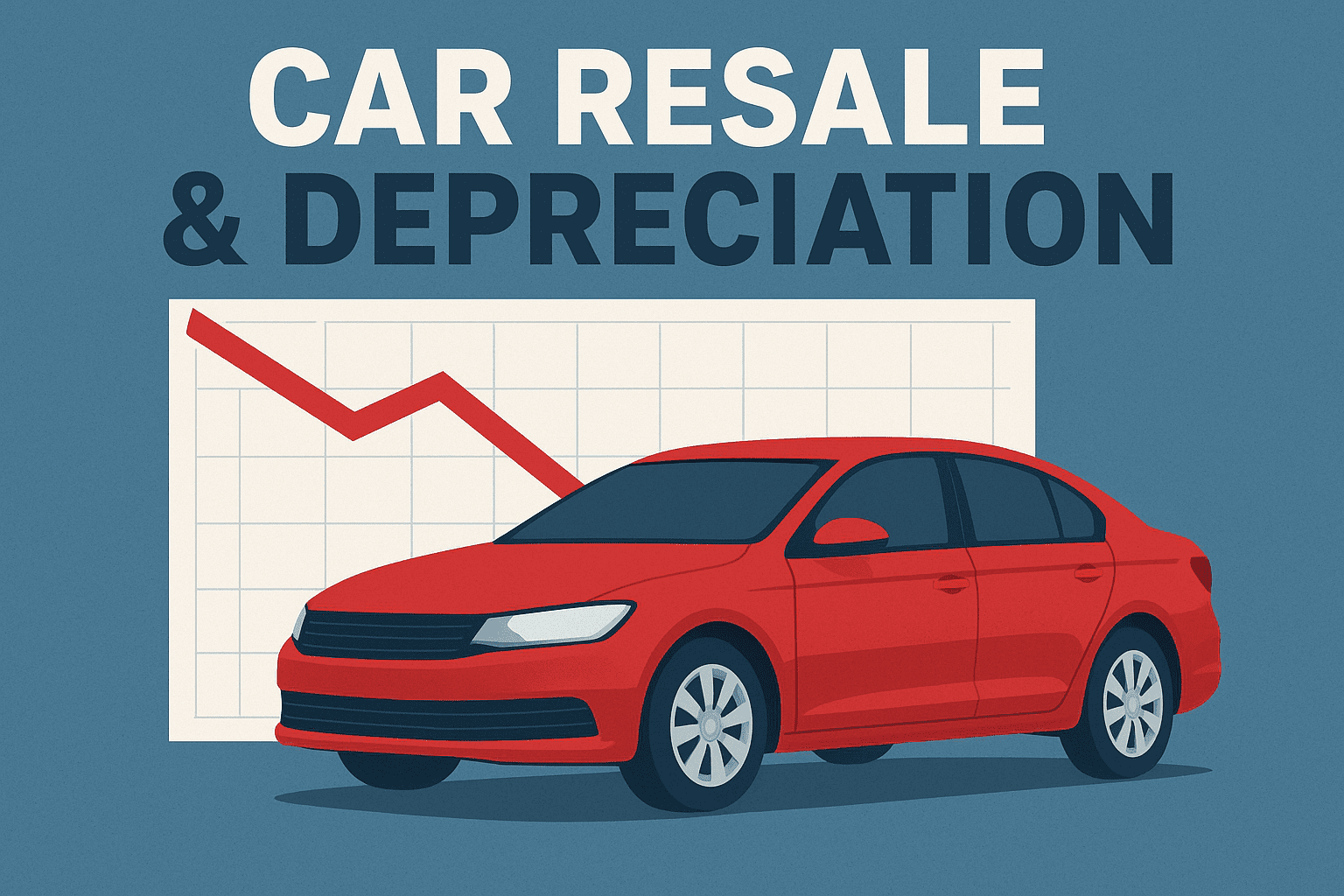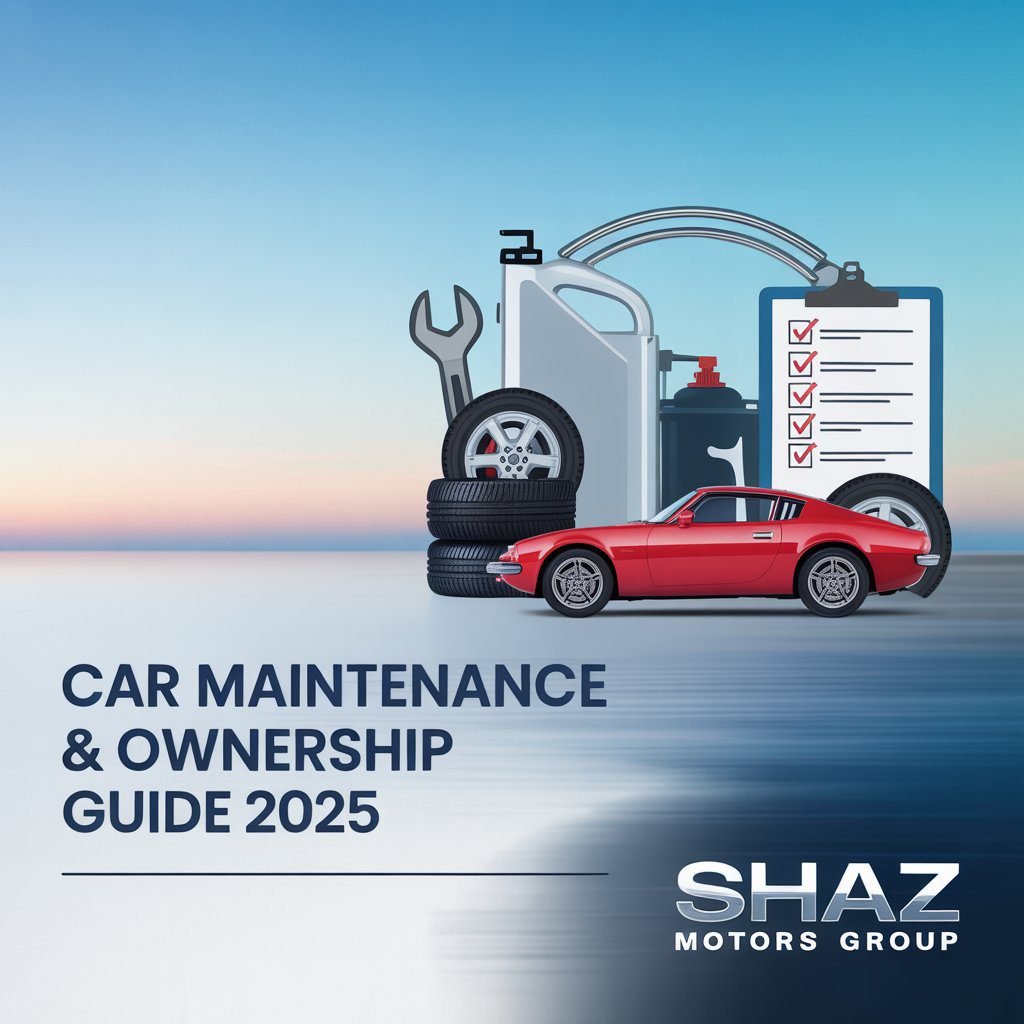When you drive a brand-new car off the dealership lot, it instantly loses a chunk of its value. This concept is called car depreciation, and it’s one of the most important yet overlooked aspects of vehicle ownership. Whether you’re planning to sell your car in a few years, trade it in for a new ride, or simply want to understand your car’s true worth, knowing how car resale value and depreciation work can save you thousands in the long run.
In this guide, we’ll break down everything you need to know about car resale and depreciation, share pro tips on minimizing value loss, and highlight what factors impact your vehicle’s worth in today’s fast-changing automotive market.
What is Car Depreciation?
Simply put, depreciation is the decline in a car’s value over time due to factors like age, mileage, wear and tear, and even brand reputation. On average, a new car loses 20–30% of its value in the first year and around 50–60% within five years.
Think of it this way: if you purchase a new car worth $30,000 today, its resale value after three years could drop to about $18,000 (depending on make, model, and usage). This drop is unavoidable, but smart choices can help reduce the impact.
Why Does Depreciation Matter?
Understanding depreciation isn’t just about knowing your car’s resale price—it’s about making smarter financial decisions. Here’s why it matters:
- Better Buying Decisions – Choosing a car with a strong resale value helps you save money when it’s time to upgrade.
- Financial Planning – If you know your car’s future worth, you can budget for your next purchase without surprises.
- Smarter Leasing Choices – Lease agreements are heavily influenced by predicted depreciation rates.
In short, knowing how depreciation works means you’re in control of your investment.
Factors That Impact Car Depreciation
Not all cars depreciate at the same rate. Here are the main factors that influence how much value your car retains over time:
1. Brand & Model Reputation
Luxury cars may look appealing, but not all of them hold value well. Brands like Toyota, Honda, and Lexus are known for strong resale values thanks to reliability and demand. On the other hand, some luxury models drop in value quickly because of high maintenance costs.
2. Mileage
The more miles you drive, the lower the resale value. Cars with under 60,000 miles typically sell faster and at higher prices compared to those with over 100,000 miles.
3. Vehicle Condition
Scratches, dents, worn-out interiors, and poor maintenance records can drastically reduce resale value. A clean, well-maintained car will always attract better offers.
4. Fuel Efficiency & Market Trends
With rising fuel prices and growing demand for eco-friendly cars, vehicles with better fuel economy or hybrid/electric options tend to depreciate slower.
5. Color & Customization
Believe it or not, your car’s color impacts resale value. Neutral shades like white, black, silver, and gray hold value better than flashy colors. Excessive customization (like aftermarket rims or spoilers) often reduces value since buyers prefer stock vehicles.
6. Supply & Demand
If your car model is in high demand in the used-car market, depreciation will be slower. On the flip side, oversupply of a certain model leads to faster value drops.
Tips to Minimize Car Depreciation
While you can’t avoid depreciation entirely, you can definitely slow it down and protect your car’s resale value.
- Buy a Used Car Instead of New
Cars depreciate the most in the first 1–3 years. Buying a slightly used car means someone else takes the biggest hit, while you still enjoy a reliable vehicle. - Keep Mileage Low
Plan your drives wisely. Avoid unnecessary long trips and use alternative transport when possible to keep mileage under control. - Maintain Your Car Regularly
Timely servicing, oil changes, tire rotations, and keeping maintenance records go a long way in boosting resale value. - Avoid Over-Customization
While tinted windows and alloy wheels look cool, extreme modifications can scare away buyers. Stick to factory-standard features. - Choose Resale-Friendly Cars
If you’re buying a car today, check resale value reports and opt for brands/models known for reliability. - Take Care of the Interior & Exterior
Regular washing, waxing, and interior cleaning will keep your car in top-notch condition. Small investments in upkeep can return big rewards during resale.
Car Resale Value in 2025: What’s Trending?
The used car market has been booming globally, and 2025 is no different. Some interesting trends shaping car resale values include:
- EV & Hybrid Cars Rising in Value – With eco-conscious buyers in the spotlight, hybrid and electric vehicles are depreciating slower than ever.
- SUVs Hold Strong – Compact SUVs and crossovers are still in demand, making them a safer choice for long-term resale.
- Tech-Loaded Cars – Vehicles with advanced driver-assist features, touchscreens, and connectivity options retain better resale value.
- Fuel-Efficient Sedans – While SUVs dominate, smaller fuel-efficient sedans remain attractive in markets with high fuel prices.
If you’re planning to sell or trade in your car, tapping into these trends can help you get maximum resale value.
When is the Best Time to Sell Your Car?
Timing is everything when it comes to maximizing resale value.
- Sell Before Major Repairs Are Needed – Cars about to hit 100,000 miles or requiring big repairs (like a timing belt change) tend to lose value fast.
- Sell Before New Models Launch – Once a newer version of your car is released, your car’s resale value usually drops.
- Seasonal Trends – Convertibles sell better in summer, while SUVs and 4x4s are more in demand during winter.
Being strategic with timing can help you get thousands more during resale.
Final Thoughts
Your car is more than just a mode of transport—it’s an investment that constantly loses value. But by understanding car depreciation and being proactive, you can slow down the process and maximize your car resale value.
Remember:
- Choose reliable, fuel-efficient cars with strong demand.
- Maintain your vehicle like it’s brand new.
- Time your resale strategically.
By following these steps, you’ll not only enjoy your car while you own it but also get a solid return when it’s time to upgrade.


